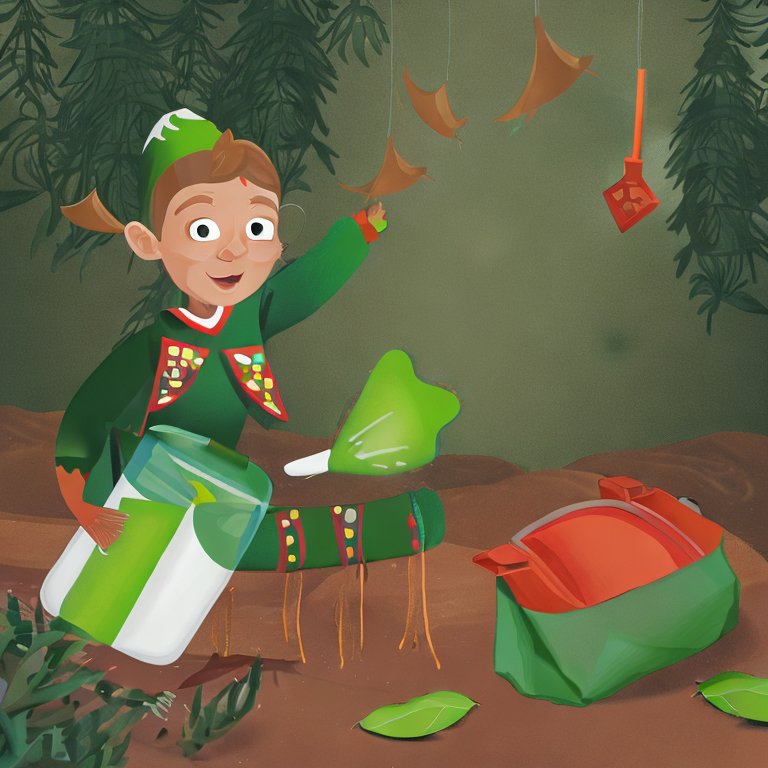day 3
3rd night in a row up until 1:30am .-.
why do i make these choices
oh well this one was nice, got to pull out more functional programming goodies today, and found reviewing others submissions a little more engaging than previous days, hopefully that continues!
click to view my solution
given the sample input:
vJrwpWtwJgWrhcsFMMfFFhFp
jqHRNqRjqzjGDLGLrsFMfFZSrLrFZsSL
PmmdzqPrVvPwwTWBwg
wMqvLMZHhHMvwLHjbvcjnnSBnvTQFn
ttgJtRGJQctTZtZT
CrZsJsPPZsGzwwsLwLmpwMDwassuming input is the above as one big string,
rucksacks =
input
|> String.split("\n", trim: true)
|> Enum.map(&String.split(&1, "", trim: true))a pretty simple input parse today, just split on newlines, and then split each string into a list of characters
[
["v", "J", "r", "w", "p", "W", "t", "w", "J", "g", "W", "r", "h", "c", "s", "F", "M", "M", "f",
"F", "F", "h", "F", "p"],
["j", "q", "H", "R", "N", "q", "R", "j", "q", "z", "j", "G", "D", "L", "G", "L", "r", "s", "F",
"M", "f", "F", "Z", "S", "r", "L", "r", "F", "Z", "s", "S", "L"],
["P", "m", "m", "d", "z", "q", "P", "r", "V", "v", "P", "w", "w", "T", "W", "B", "w", "g"],
["w", "M", "q", "v", "L", "M", "Z", "H", "h", "H", "M", "v", "w", "L", "H", "j", "b", "v", "c",
"j", "n", "n", "S", "B", "n", "v", "T", "Q", "F", "n"],
["t", "t", "g", "J", "t", "R", "G", "J", "Q", "c", "t", "T", "Z", "t", "Z", "T"],
["C", "r", "Z", "s", "J", "s", "P", "P", "Z", "s", "G", "z", "w", "w", "s", "L", "w", "L", "m",
"p", "w", "M", "D", "w"]
]another day, another list of lists
defmodule Rucksack do
def item_to_priority(item) do
item |> String.to_charlist() |> Enum.at(0) |> item_number_to_priority
end
def item_number_to_priority(number) when number >= 97, do: number - 96
def item_number_to_priority(number), do: number - 38
endonce we find the duplicate item in the rucksack(s), we’ll need to map that to some priority number
here, i go from string -> charlist -> single char, and then use some sneaky guard clauses to do math on the single char value which maps it from its value in ascii, to the priority number
part 1
rucksacks
|> Enum.map(fn rucksack ->
rucksack
|> Enum.split(round(length(rucksack) / 2))
|> Tuple.to_list()
|> Enum.map(&MapSet.new(&1))
|> Enum.reduce(&MapSet.intersection(&1, &2))
|> Enum.at(0)
|> Rugsack.item_to_priority()
end)
|> Enum.sum() # -> 157i do a lot here
first, i want to map over each rucksack, since for part one we are concerned about splitting up a rucksack into two chunks, and finding a duplicate between each chunk
i use Enum.split to split the rucksack into two chunks, which gives me a tuple, so i use
Tuple.to_list() to turn it back into a list i can iterate over
i then, convert each list into a MapSet, since i want to perform a [set operation] to find the duplicate
i then reduce my list of two items down to one, using a reducer that passes its values to MapSet.intersection, which will end up only reducing once, since the first item will be the accumulator, and the second item will be the only other value the reducer handles
after this operation i am left with a single MapSet, with only a single value within it, the duplicate
i use Enum.at(0) to pluck out the single item from the MapSet, passing it to my utility function to convert from item -> priority number
i do this for every rucksack, and compute the sum of the list of priorities
part 2
rucksacks
|> Enum.chunk_every(3)
|> Enum.map(fn rucksacks ->
rucksacks
|> Enum.map(&MapSet.new(&1))
|> Enum.reduce(&MapSet.intersection(&1, &2))
|> Enum.at(0)
|> Rugsack.item_to_priority()
end)
|> Enum.sum() # -> 70this is similar to the above, however, i use Enum.chunk_every(3) to convert
my list of rucksacks into a list of lists of rucksacks, each nested list having
a length of 3
i iterate over this list of lists, and convert each rucksack in the list of 3
to a MapSet, like before, but since i’m not splitting it into two, i use
Enum.reduce with MapSet.intersection again, but this time i’m reducing 3 MapSets to a single MapSet
then, i do the same as before, pluck out the answer, get the priority, and sum everything, ezdubz
the full solution can be found [here]
others
[Mudkip/AdventOfCode] python[krbarter/Advent-Of-Code-2022] pythona nice and compact solution
def part1(): input = open("3.in", "r").read().splitlines() rucksacks = ((set(list(x[:len(x)//3])), set(list(x[len(x)//2:]))) for x in input) prios = (ord((rucksack[0] & rucksack[1]).pop())-96 for rucksack in rucksacks) normalize = (prio if prio > 0 else prio+58 for prio in prios) return sum(normalize) def part2(): input = open("3.in", "r").read().splitlines() groups = [input[i:i+3] for i in range(0,len(input), 3)] badges = [(set(group[0]) & set(group[1]) & set(group[2])) for group in groups] prios = (ord(badge.pop())-96 for badge in badges) normalize = (prio if prio > 0 else prio+58 for prio in prios) return sum(normalize)so nice and compact i can comfortably include it inline within this page without it filling up much space
a bit code golfy, but sometimes thats the vibe
[nint8835/AdventOfCode2022] f# & pythonsome set operations, and being sneaky using a string to map the resulting duplicate to the value
part 3 is heading into code golf territories, but i usually feel that whenever i see a complicated list comprehension statement that i haven’t authored :)
[hamzahap/AdventOfCode2022] sheetsfeelin’ a lot like my solution with regards to the mapping / usage of set intersections
however the same string map trick kent used, is also used here, nice and compact!
i prefer this implementation of the string map because i am a functional programming fiend
[TheCrypticCanadian/advent-of-code-2022] pythonopening up this sheet on my laptop makes it unhappy and loud initially
but hamzah is out here still on that sheets grind
however,
[3:38 AM] Hking: Motivation to stop doing Sheets is very high rn
this statement from a very up late hamzah might indicate the end of the sheets reign?
time will tell
[STollenaar/AdventOfCode2022] golanginput parsing looks to be more than whats needed, but still using set operations, so clean
[zcvaters/adventofcode2022] swiftit seems sven have the same realization as myself and mudkip, but
[12:30 PM] Secure Cluster Nerd 5000: yuup I thought the same. but with GO there isn’t really a nice quick buildin way to do that
therefore his solution looks like the solution of someone who has sets in their head, but not actually using sets
its still compact so nice
[chadmroberts88/advent-of-code-2022] typescriptzach had a pretty gnarly function to go from rucksack item -> priority, but by the time i am writing this, its much cleaner :)
swift has sets!, which are being used here, although using [intersection] would be cleaner imo
[mathieuboudreau/advent] python notebookclean little ts solution, almost functional if that
forEachusage could be areduceinstead :)
[Keenan-Nicholson/AdventOfCode] typescript
setandord, the python tricks that make this solution cleanbut whats this,
&usage to do intersections on the sets!now thats mathy
[CameronSquires/AdventOfCode2022] python[12:31 PM] keeborg: As a mathematician I’m disappointed my first thought was not set intersection
keenans solution does not use sets, and he’s sad it doesn’t use sets
i still think its nice though <3
[joel1842/advent-of-code-2022] pythona bitta [indent hadouken] going on here
[ecumene/advent_of_code] python notebookjoel keeps up the list comprehension grind yet again
[canetoads.ca] javascriptmitch out here managing to be the first person on the muncs leaderboard to complete both part 1 nand 2, nice
he has also blessed us with another ai image:

prompt: an elf filling bags with supplies for a journey into the jungle
thank you mitchell, very cool
[apreynolds1989/AdventOfCode2022] typescriptinteresting, constructing a map from item -> priority programmatically
mixing arrow functions and full fat functions inline, tsk tsk
but its still nice and compact, and set-intersectiony, so nice
[lilmert/aoc] rustanother day that is so close to being functional! make those
forEachstatements reducers!a nice solution though, and catches the strict of char code conversion depending on if upper or lower case
[RyanBrushett/adventofcode2022] rubymarty’s aoc utils are :clean:
rfind on the
ALPHABETis :clean:
[ajhynes7/advent-of-code-2022] juliaits ruby so im biased for the third day in the row, that this is clean
i keep using the word clean quite a bit
probably the neatest solution that prepares a priority map beforehand
letters = ('a'..'z').to_a.concat(('A'..'Z').to_a) priorities = letters.each_with_object({}).with_index do |(letter, hash), index| hash[letter] = index + 1 endand uses
&for set operationsnice
[devthedevel/advent_of_code] typescriptjulia and ruby are def. the nicest here to skim through, probably because syntactically its similar to my own solution :)
a top level
intersectfunction, interestingi like the top level
firstfunction usage tooim gonna say it
clean
[DanielPower/AdventOfCode2022] haskellDev: Also no //@ts-ignore this time @Jack Harrhy
the clouds have heeded my advice, i am forever blessed
daniel was late on this one, tsk tsk, too much osu
the function name
uncurrymakes me laughmany util functions, but util functions are nice and small
very composed of functions, very functional, who would have guessed from someone doing their solution in haskell
if you want to have your repo added for me to make a note of / talk about here (or have you repo removed), reach out:
email -> me@jackharrhy.com
discord -> <i>jack arthur null</i>#7539
